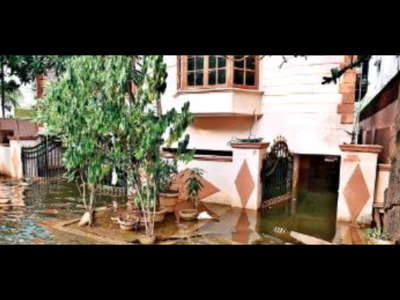Indian Express 19.01.2010
HC to civic bodies: relocate Kashmiri traders
Considered “internal refugees”, 21 Kashmiris who had migrated to the national capital in 1990 and had subsequently managed to earn a living, found themselves in penury again following demolition of their shops.
After a demolition exercise in 2007 by various civic agencies of Delhi, razing down the 21 stalls they operated at INA Market area, members of the community were struggling to make ends meet.
Almost three years after the incident compelled them to make rounds of the court while all the civic bodies washed their hands off the liability to relocate them, the High Court has finally come to their reprieve and sternly directed the ministries concerned to do the needful to restore their livelihood.
The joint demolition was carried out despite the fact that petitions by the migrants were pending before the Delhi High Court, which had passed directives protecting them from any adverse actions during the pendency of the matter.
Strongly reproaching the civic bodies, Justice S Muralidhar asked the Ministry of Home Affairs and the Ministry of Urban Development along with the representatives of the civic bodies — the Municipal Corporation of Delhi, the New Delhi Municipal Corporation, the Delhi Development Authority and the Land & Development Office — to convene a meeting within three weeks.
“It is expected that the outcome of the meeting would be positive for the 21 Kashmiri migrants whose shops had been demolished without any prior notice and in the teeth of the court orders. It would be the responsibility of the agencies to identify a suitable place where these 21 migrants will be permitted to have their shops or stalls and resume their livelihood,” said the court.
The court termed the demolition “high-handed and deplorable” and said it was “unfortunate” that their actions left the Kashmiri traders without any means of livelihood.
Justice Muralidhar also pulled up the agencies for shirking their responsibility of relocating the petitioners, saying “it was not open to any of the agencies to wash their hands off when it comes to the question of assuming responsibility for rehabilitating them”.
The petition was filed by Vijay Nehru, along with five other Kashmiris, but it brought to light similar tales of 15 others, whose shops were also pulled down on February 26, 2007, at 7 am.
As per their petition, all that was there in the shops was also looted.
While adjudicating the petition, Justice Muralidhar noted that the problem faced by them was serious.
Responding to a submission by the Union of India over the Rs 1600-crore package announced by the Prime Minister in April 2008 for the return and rehabilitation of Kashmiri migrants, the judge said, “While the package may have been announced, its actual working is what requires to be ascertained. As regards the livelihood component of the package, it appears that apart from reserving certain posts in the five India Reserve Battalions, special provisions to Kashmiri migrant students for admission to educational institutions and reserving seats in medical and professional colleges for widows of Kashmiri migrants, there is nothing specific as regards rehabilitation by way of restoration of their livelihood.”
The court also threw out the contention that these migrants could purchase commercial space made available by the Delhi Metro Rail Corporation, saying the expectation was contrary to their sufferings and precarious economic situation.
The next date of hearing has been fixed for February 24, by which the court is to be informed about the steps being taken to relocate the Kashmiri traders.


